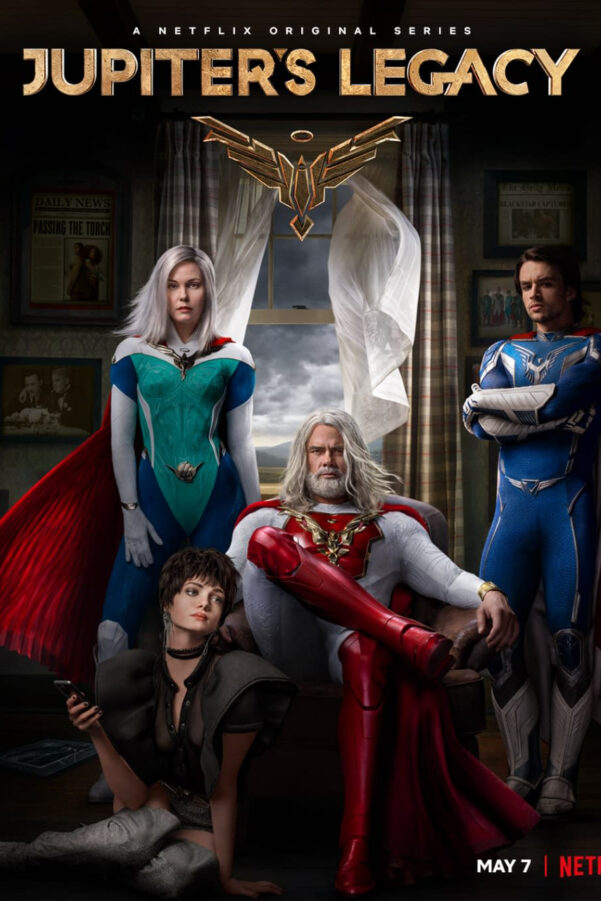Jupiter’s Legacy

Jupiter’s Legacy may be the most fortuitously blessed TV show in recent times. The big-budget Netflix superhero series launches right after the finales of acclaimed Image Comics adaptation Invincible and Marvel chapter The Falcon and the Winter Soldier – and five weeks before the next MCU release, Loki. Thereby granting the show a full month at the centre of the cultural zeitgeist – a feast for those who are eternally craving caped content. As the data shows, many of us are not quite tired of these stories yet.
Based on the comic book series written by Mark Millar (Kick-Ass, Kingsman), this eight-episode season revolves around the Sampson family, a group of super-powered individuals whose generational differences form the basis of their values. The core conceit is that the young adult children, Brandon (Andrew Horton) and Chloe (Elena Kampouris), must continue the powerful legacy of their parents Sheldon (Josh Duhamel) and Grace (Leslie Bibb), who improved America once they learnt of their powers during the post-recession period of the 1930’s.
There are two timelines here, distinguished by different aspect ratios in addition to obvious period details. In the past, Sheldon is haunted by the suicide of his father after he loses everything in the stock market crash of 1929. Haunted by the loss, his breakdown manifests as a realisation of abilities. He’s accompanied by loved ones including his first wife Jane (Meg Steedle) and ally Richard (David Julian Hirsh), a founding member of his superhero collective “The Union”. This narrative is long and laborious viewing, aggravated by slow character development, though it has an interesting perspective on how socioeconomic factors influenced their formation.
On the other hand, the present-day timeline is as enjoyable as it is derivative. The contrast between the noble Sampson parents – he’s now married to Grace (Leslie Bibb) – and their fledgling superhero kids is highlighted by today’s environmental factors, primarily the toxic aspects of modern youth culture. Jupiter’s Legacy is overly familiar in its treatment of contemporary superheroes – every conflict is recognisable – but ironically, it’s most fun when the show embraces its conventions. An abundance of appealing costumes, excellent VFX, fun fights and quintessential hero names (The Utopian, Brainwave, Lady Liberty, etc) give genre fans more of what they like. Its legacy may be hijacked by the monthly surplus of similar content this year, but superhero addicts will get their fix for the time being.
Musanna Ahmed
Jupiter’s Legacy is released on Netflix on 7th May 2021.
Watch the trailer for Jupiter’s Legacy here:

























Facebook
Twitter
Instagram
YouTube
RSS